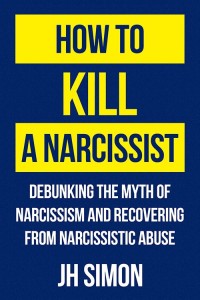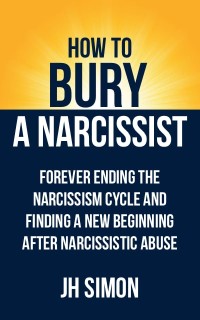Table Of Contents
Every year, I split my days between the Northern and Southern Hemispheres, enjoying time with friends and family in reasonably stable and familiar environments.
Recently, however, I’ve been immersing myself in nomad life in Southeast Asia, spending long periods in selected cities, using the ‘new mind’ that unfamiliar places give me to feed my creativity. And with that, I’ve found myself at the epicentre of the digital nomad scene, with my current location being the splendid beachside city of Da Nang, Vietnam.
To the Vietnamese, Da Nang is a big, bustling city. The digital nomads, on the other hand, may as well be living in a small village. The majority of them are packed into a small square in the district of My An, which provides access to cafes, co-working spaces and of course, the beach. Much like a village, if you stay an extended period here, you tend to come across the same people. Conversations often spark up in the flow, and you get to make friends rather easily.
Each person has a unique personality and story — why they came to Da Nang, how they spend their time, how they make money, their passions, their hobbies, their spiritual practice, their emotional baggage. Yet over time, common patterns start to show, and a fascinating story about digital nomads emerges.
A Special Breed
I know many individuals who have lived in the same suburb or village for decades on end, see the same people each day, and have a routine that rarely changes year to year. In the hierarchy of needs, stability seems to be at the very top for them.
Nomads are a different breed. While the homebody craves stability, the nomad craves experience and novelty. Where they live, who they know and how they spend their time changes and evolves continuously. Home is not where their heart is, it’s where their laptop is. They have an itch which they can only scratch by travelling to the next exotic place, or, if they stay put for a longer period, by going to the next cool event. Meetups, bars, nightclubs, sports activities or road trips, there’s always something to do. And when it gets boring? Someone has probably already recommended the next place and captured the nomad’s imagination.
Nomads are often open-minded, curious, energetic, spiritual, dreamers, hungry to learn and somewhat chaotic. Limits are anathema to them, and they tend to get bored easily. The nomad craves limitless freedom, and loves the open road or ocean.
Nomads are also risk-takers. They can adapt on the fly, and they possess the courage to lean on the edge of the unknown at all times. They tend to be resourceful, resilient and tolerant of chaos and uncertainty.
The one question which has driven my fascination since arriving in Da Nang is: What feeds the nomad’s seemingly unquenchable thirst?
Chasing Something, Or Running Away?
Recently I was having dinner with a group of nomads I barely knew. The topic of conversation switched often between typical nomad themes: Psychedelics. Spirituality. Favourite Cities. What people do for a living. Best bars in Da Nang. Who knows a good tattoo parlour. The conversation remained impersonal, until one woman asked another about her family, with the response being: ‘I don’t talk with my family’.
After an uncomfortable pause, the topic switched to the illusive ‘feeling of home’ most people on the restaurant table admitted to missing. ‘Alternative communities’ were determined to be the best solution to this problem. Only a nomad could understand another nomad’s uniqueness, and only a nomad could match another nomad’s curiosity and hunger. One’s home of origin was too rigid, too predictable, too boring. The final destination was out therein the future. Were the nomads chasing a unicorn? A mirage? Or were they pursuing a life of authenticity which allowed them to live according to who they were?
The Dark Side Of Nomadic Life
Every nomad community has a chat group where people can ask random questions to help them navigate their foreign environment, or to organise meetups and events. Late one evening, an anonymous guy posted over a hundred creepy, incomprehensible messages for two thousand people to see, seemingly going through a psychotic episode.
In the morning, the admin had deleted all the messages and removed the guy from the group. Someone eventually checked up on him, and it turned out he was struggling with his mental health.
From there, yet another trend emerged.
One guy I met was dealing with post-traumatic stress from military training that went awry. Another seemed to be high on something every evening I passed him on the street, with his empty, searching eyes looking for the next fun party. Arrested development seemed to plague the nomads. Many looked and acted younger than they were. For every seemingly calm and adjusted person, another seemed to be ‘going through something’.
In a community of seekers, there were many lost souls drifting around, haunting a foreign paradise where locals were scrapping for a living.
The Psychopathic Allure Of Anonymity
The life of a nomad can be a playground. While locals struggle with the monotony and grind of daily life, nomads are chasing the next adventure. The contrast is striking to witness. And it is within this contrast that we discover the shadow of nomad life.
With nomad life, if you meet someone you dislike, you can always move on to the next person. If you reach an uninspiring city, you can pack and leave. If a place does inspire you, you can enjoy its perks without needing to contribute to making it function. There is little accountability, responsibility, or limits. Much like the guy who had a breakdown over the Whatsapp group for all of the digital nomads in Da Nang to witness, if you mess up, you can clear the slate and try again elsewhere.
Travelling to new places, immersing yourself in foreign cultures, exposing yourself to new ways of life; all of this is wonderful to experience, and I recommend everyone partake in it for a time. It is also a great way to support developing economies. Yet to see the world as one big playground can quickly turn pathological.
Environment governs how we behave. If you live in a small village where everyone knows everyone and nobody leaves, you need to watch what you say and do. Your reputation is always on the line. If you want to be accepted and supported, you will need to check yourself. In the nomad world, that is no longer a concern. Because of this, the nomad world attracts not only freedom lovers and curious travellers, but also narcissists with delusions of grandeur and a psychopathic mindset. To be anonymous can bring out the worst in a person, who gradually realises that there are no consequences for bad behaviour.
The nomad world also attracts deeply-traumatised people who find it unbearable being where their trauma formed. Moving forward at all times can be like pain relief, allowing them to stay a step ahead of their repressed pain at all times.
The idea of absolute freedom and no accountability can activate our grandiose fantasies like nothing else. As the nomad dances above it all, reality remains steadfast, reminding the nomad of its presence in the face of every local sweating to earn a dollar, and every message from home informing them of someone’s sickness or misfortune.
I would like to give this fascinating community the benefit of the doubt. Perhaps most nomads are aware of the truth, and are diligently using their freedom to correct their perspectives and heal their wounds before returning home. Maybe other, more resourceful nomads manage to keep this tightrope life going until old age. For the rest, however, I imagine the chickens will be home soon, ready to roost in the nomad’s reckoning, as their narcissistic fantasy comes crashing down.















